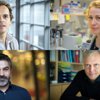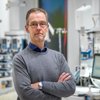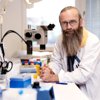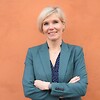-

The art of successful licensing – “A lot has to align”
Sharp research, strong data and a high level of innovation are all very good, but more than that is required to achieve the goal of many biotechnology companies: to succeed with a licensing deal.
-

Developing rapid diagnostics for sepsis – “Every hour counts”
Finding the right antibiotic in the right dose – with an ultra-fast analysis method. Gradientech's product solution is currently used in routine diagnostics at several hospitals in Europe – and the next target is the US market.
-

600 million SEK for life science - "Should not be the country of moderation"
Sweden will prioritize excellence over breadth in research. This was made clear when the government presented the research proposition for the next four years.
-

The new Swedish life science strategy – “It will consolidate Sweden as a leader”
Clinical trials and precision health are emphasised as key areas in the new national life science strategy.
-

Jätteanslag till medicinsk grundforskning – åtta projekt delar på 227 miljoner
Mekanismerna bakom kronisk smärta, en atlas över tarmbarriären och B-cellsminnets outforskade dimensioner är några av de åtta grundforskningsprojekt inom medicinfältet som får dela på 227 miljoner kronor från Knut och Alice Wallenbergs stiftelse.
-

Obesity-drug pioneers win Lasker Award
This year’s Lasker Prize in Clinical Research has been awarded to three researchers for their discoveries in GLP-1-based drugs that, according to the jury, “have revolutionised the treatment of obesity”. Among others, Novo Nordisk’s Lotte Bjerre Knudsen is honoured.
-

“We should avoid surgery if we can”
Since February this year, she has been Scientific Director Life Science at the Karolinska Institutet. Life Science Sweden met Anna Martling for a talk about role models, surgery and Sweden’s strengths and weaknesses in medical research.
-

“Conducting research at universities is becoming more and more like working at a research hotel”
The government wants Swedish research to focus on excellence and innovation, but can the two be combined? Life Science Sweden talks to Anna Falk, a professor at Lund University, about research policy, the constant hunt for funding in academia and what constitutes ‘fine research’.
-

The life science strategy – what the industry wants
The process of updating the national life science strategy has begun at the government’s life science office. According to industry stakeholders, Sweden’s competitiveness, the accessibility of health data and the integration of innovation in healthcare are some of the points that are essential to review.
-

Major investment in women’s health – for a more equal healthcare system
”The regional differences need to decrease and the long-term supply of midwives and other professions needs to be secured,” write Acko Ankarberg Johansson and Désirée Pethrus (both Christian Democrats), in an opinion article.
-

The Swedish Academy of Sciences: “We have too many researchers”
Sweden does not need more researchers, but it does need better ones. According to the Royal Swedish Academy of Sciences, funding should be distributed to favour excellence.
-

Founder of Bioarctic, Lars Lannfelt, is honoured: “I want to create something for the future”
It´s like a scientist’s dream: to be the world’s first with a drug that genuinely affects one of our major diseases. Lars Lannfelt and his company Bioarctic have achieved just that, and they are thus making a significant contribution to the history of Swedish medicine. He is now being awarded the Research!Sweden Award 2023.
-

Astra Zeneca’s Sweden CEO: “We have great faith in our portfolio”
It all started with a summer job as an operator at Astra’s chemical factory in Snäckviken, just outside Södertälje. More than three decades and countless different assignments later, Per Alfredsson, born and raised in Södertälje, is CEO of Astra Zeneca Sweden, which employs 7800 people in Södertälje, Stockholm and Gothenburg. “It was a very special feeling to be in charge of the entire organisation,” he says in an interview about his career and potential future blockbusters.
-

Samuel Lagercrantz: A special kind of hellishness afflicts post-COVID patients
In addition to the disease itself those suffering from post-COVID have to deal with people who try to label them as hypochondriacs, writes Samuel Lagercrantz in an editorial.
-

“Unfortunately, we are not strong when it comes to conducting clinical trials”
The number of company-initiated clinical trials conducted in Sweden has been declining in recent years. In mid-March, a government inquiry was presented that aimed to find answers and solutions to this downward trend. One of the proposals was a stable, sustainable and funded model for collaboration.
-

Conference on Alzheimer’s reveals several advances in the field
In Gothenburg, Sweden, researchers and pharmaceutical companies from all over the world gathered to discuss one specific issue – neurological diseases. Life Science Sweden has talked to some of those that attended the conference.
-

KI’s new President: “We need to work closer together”
A closer link between research and education and a stronger “we-feeling” are aims that Annika Östman Wernerson sets out to achieve as the new President of Karolinska Institutet. She will not give up her research entirely though. “I think it’s crucial to maintain a close presence in the business,” she says.
-

Precision medicine centre: “Extensive activity on several fronts”
Two years ago, the Karolinska Institutet and the Karolinska University Hospital announced that they would jointly launch the Precision Medicine Centre. Medtech Magazine called Anna Wedell, who is heading the work, to find out…
-

The government proposes fines for pharmaceutical companies that fail to notify drug shortages in time
According to a compilation from the Swedish Medicines Agency, the number of residually notified medicines increased by 54 % in Sweden last year compared to the previous year. In a bill presented by the government a number of proposals are put forward to counteract the problem.
-

“Photon counting in computed tomography is the holy grail”
Erik Fredenberg, a researcher in physics at KTH and GE, is working to implement photon-counting CT in clinics. To shorten lead times and reduce the radiation dose in patients, he is setting out to develop a framework for virtual clinical trials for the technology.
-

A new international stem cell research centre has been created in Copenhagen
A new centre for stem cell research opened to the public in January. The Novo Nordisk Foundation backs the initiative with the ambition that the centre will advance new medical technology and new stem cell therapies.
-

Marie Gårdmark: Finally, it’s time for a revision of the EU pharma legislation
A challenge for the EU Commission is to deliver a new framework that will also take care of another “pillar” of the pharmaceutical strategy, namely, to ensure that new medicines will be available for all citizens in Europe, writes Marie Gårdmark in a column.
-

The Oresund region aims at becoming Europe’s microbiome Mecca
The Medicon Valley Alliance’s ambition: Skåne and the Copenhagen region will become world leaders in microbiome research.
-

Grönländsk genvariant påverkar diabetes
Andelenfall av typ 2-diabetes på Grönland har ökat dramatiskt de 25 senaste åren. En del av förklaringen ligger i generna. Det visar Niels Grarups forskning och nu får han pris för sina upptäckter.
Få tillgång till allt innehåll på Life Science Sweden
Ingen bindningstid eller kortinformation krävs
Redan prenumerant? Logga in
Gäller endast personlig prenumeration.
Kontakta oss för en företagslösning.